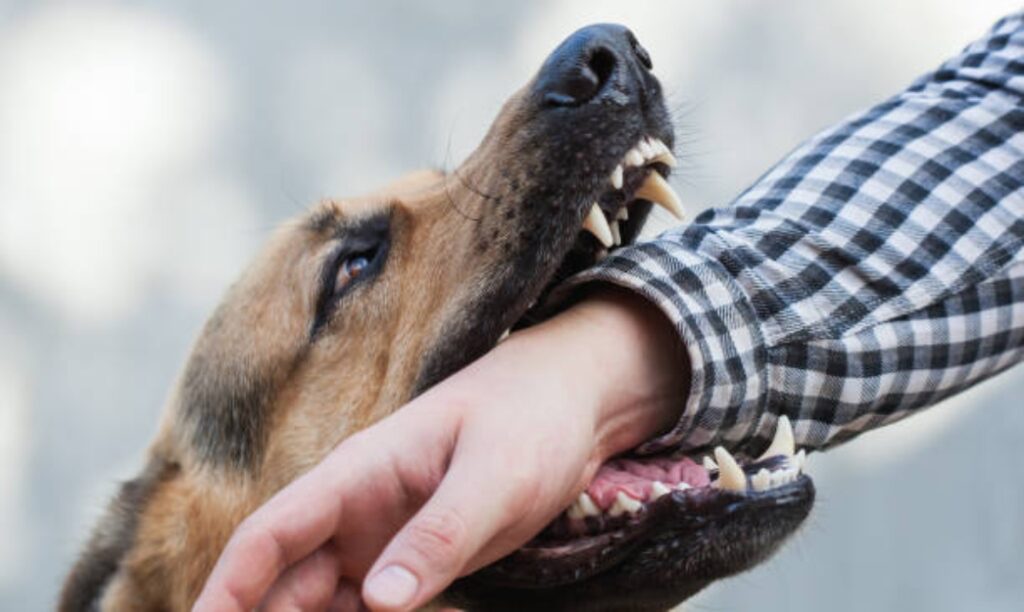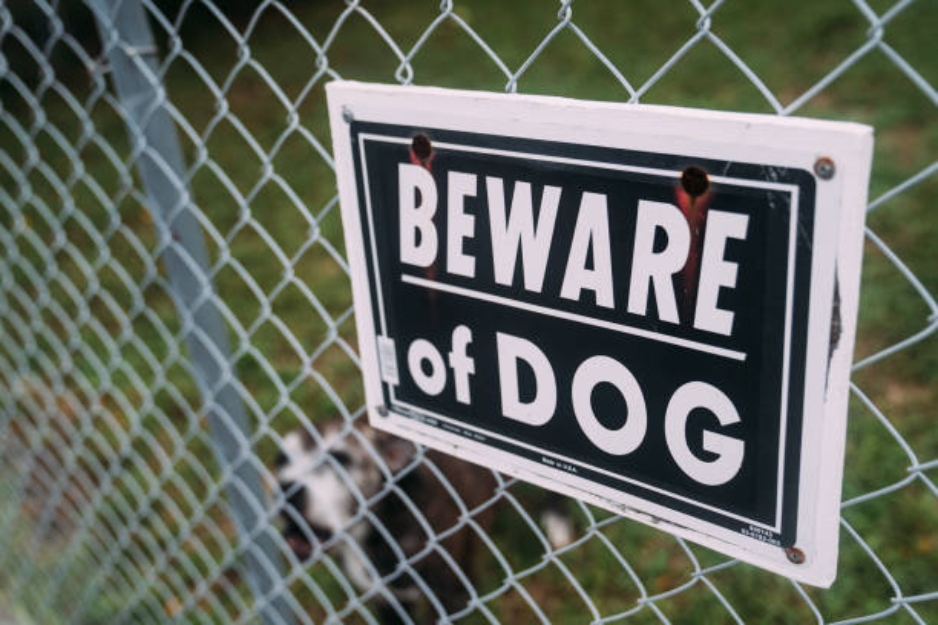
Dog bites are an emotional and legal issue that varies widely across the United States. Some states enforce strict penalties to prevent incidents, while others are more lenient, focusing on rehabilitation and owner education. In this analysis, we explore 2024 statistics, examine the states with the most severe penalties, and compare them to those with more forgiving laws.
The Most Severe Penalties: California and New York

In 2024, California and New York emerged as states with the harshest penalties for dog bites. California’s strict liability laws mean that dog owners are almost always held responsible for their pet’s actions, regardless of the circumstances. A dog bite victim in California can sue for medical bills, lost wages, and pain and suffering. The penalties escalate if the dog has a history of aggression, leading to mandatory euthanasia in severe cases. Fines for owners can exceed $25,000, and repeat offenders may face jail time.
New York follows a hybrid approach, combining strict liability with a “one-bite rule” for certain situations. However, if a dog is deemed dangerous after a single incident, owners can be fined up to $20,000, and the dog may be euthanized. In urban areas like New York City, where population density increases the risk of dog attacks, additional penalties apply for owners who fail to leash their pets or train them properly.
Moderate States: Texas and Florida

Texas and Florida sit in the middle of the spectrum, offering a mix of strict rules and leniency depending on the situation. In Texas, dog owners are only held liable if it can be proven they were negligent or knew of the dog’s aggressive tendencies. This means that first-time incidents may not result in significant fines. However, penalties for severe attacks include fines up to $10,000 and potential felony charges if a person is killed or seriously injured.
Florida’s penalties focus on prevention and accountability. Owners of aggressive dogs are required to carry liability insurance of at least $100,000. If a dog bites someone unprovoked, the owner faces fines between $500 and $5,000. Repeat offenses lead to mandatory obedience training or, in extreme cases, euthanasia.
States with Balanced Approaches: Illinois and Michigan

In 2024, Illinois and Michigan were noted for their balanced policies that aim to protect public safety while not overly penalizing dog owners. Illinois enforces strict liability, holding owners accountable for any injuries caused by their pets. However, penalties focus on covering victim compensation rather than imposing punitive fines. Repeat incidents may lead to mandatory training or relocation of the dog to a controlled environment.
Michigan, on the other hand, combines strict liability with exceptions for provocation. If the victim provoked the dog, the owner may not be held liable. Fines in Michigan are capped at $1,500 for minor injuries, but they rise significantly for severe attacks. Owners are also required to attend educational seminars on responsible pet ownership after an incident.
Lenient States: Kentucky and Arkansas

At the lenient end of the spectrum, Kentucky and Arkansas take a less punitive approach. In Kentucky, dog bite cases are evaluated on a case-by-case basis under the “one-bite rule.” This means that a dog owner is only held liable if the dog has shown previous aggression or the owner was negligent. Fines rarely exceed $1,000, and euthanasia is uncommon unless the dog is considered a severe threat.
Arkansas emphasizes mediation between the victim and dog owner over court proceedings. In most cases, owners pay for medical bills but avoid additional fines. Education programs are encouraged for dog owners after a bite, and there are few statewide mandates for dangerous dogs.
The Debate: Are Penalties Too Harsh?

The disparity in state penalties raises the question: Are they too harsh, or do they strike the right balance? Advocates for stricter penalties argue they deter irresponsible ownership and reduce the likelihood of attacks. In California, for example, dog bite incidents dropped by 15% between 2020 and 2024, correlating with increased fines and public awareness campaigns.
On the other hand, critics argue that harsh penalties disproportionately affect low-income families, particularly those unable to afford liability insurance or legal fees. Organizations like the Humane Society advocate for a rehabilitative approach, focusing on dog training and owner education rather than punitive measures.
Impact on Dog Owners

Severe penalties can create fear and uncertainty among dog owners. In New York, for example, owners of breeds labeled “dangerous” reported feeling targeted, even if their pets had no history of aggression. This fear has led to an increase in dog abandonments in states with strict laws, as owners worry about potential legal and financial repercussions.
Conversely, lenient states like Arkansas face criticism for failing to protect victims adequately. Without significant penalties, repeat offenders are less likely to change their behavior, and victims may struggle to receive compensation for medical expenses.
Case Studies: Real-Life Implications

In 2024, a widely publicized case in California highlighted the challenges of strict penalties. A woman was fined $15,000 after her dog bit a delivery driver, despite evidence that the driver provoked the dog by entering the property unannounced. Critics argued that the fine was excessive and ignored mitigating factors.
In Arkansas, a dog attack on a child led to public outrage when the owner was only required to pay $800 in medical bills. The incident sparked calls for stricter regulations, with advocacy groups demanding higher fines and mandatory training programs for aggressive dogs.
Economic and Social Factors

The economic impact of dog bite penalties is another point of contention. Strict liability laws often result in higher insurance premiums for pet owners in states like Florida and Illinois. Meanwhile, lenient states may struggle with the costs of managing dog attack cases, including healthcare expenses and animal control resources.
Social factors, such as urbanization and cultural attitudes toward pet ownership, also play a role. States with dense populations, like New York and California, enforce stricter laws to minimize risks in crowded environments. Rural states like Kentucky and Arkansas prioritize owner education, reflecting a culture of personal responsibility.
The Role of Insurance

Liability insurance has become a key component of dog bite laws in 2024. States like Florida and Illinois mandate minimum coverage, ensuring victims receive compensation. However, these requirements can be burdensome for low-income owners, particularly those with breeds deemed “high-risk.” In lenient states, the lack of insurance mandates often leaves victims to cover their own medical expenses, creating additional challenges.
Future Trends in Legislation

As public awareness of dog bite incidents grows, many states are revisiting their laws. In 2024, legislative proposals in Michigan and Kentucky aimed to strike a better balance between victim protection and owner rights. These proposals include mandatory training programs for aggressive dogs, increased funding for public education, and tiered penalty systems based on the severity of the bite.
States with harsh penalties, such as New York, are also exploring reforms to address concerns about fairness and equity. Advocacy groups are pushing for clearer definitions of “dangerous dogs” and exceptions for incidents involving provocation.
Finding a Middle Ground

The ideal dog bite policy balances public safety, victim compensation, and owner rights. A tiered system that considers factors like the dog’s history, the owner’s negligence, and the circumstances of the attack may provide a fairer approach. Education programs and community outreach can also play a crucial role in preventing incidents before they occur.
A Nationwide Challenge

Dog bite penalties vary widely across the United States, reflecting differences in culture, urbanization, and legislative priorities. While harsh penalties in states like California and New York have reduced incidents, they raise questions about fairness and accessibility. Lenient states like Kentucky and Arkansas prioritize owner education but may leave victims without adequate recourse.
As the debate continues, policymakers must consider the perspectives of victims, dog owners, and animal welfare organizations to craft laws that protect all parties. Whether penalties are too harsh or not harsh enough, the goal remains the same: to create safer communities for both humans and their canine companions.
Stay connected with us for more stories like this! Follow us to get the latest updates or hit the Follow button at the top of this article, and let us know what you think by leaving your feedback below. We’d love to hear from you!







